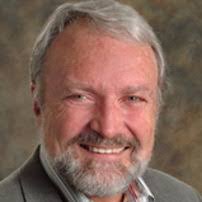SAN FRANCISCO – Until now, research on aging and how to preserve independence as we age has come almost entirely from mice, worms, and flies, or human studies of blood specimens. Researchers at Sutter Health’s San Francisco Coordinating Center (SFCC) are launching a breakthrough study—the Study of Muscle Mobility and Aging (SOMMA)—to understand the biology of human aging and how it influences people’s ability to remain independent. SOMMA is the first study of its kind in the U.S.
In collaboration with researchers at Wake Forest Baptist Health in North Carolina, AdventHealth Orlando, and the University of Pittsburgh, SOMMA will examine muscle cells from nearly 900 women and men aged 70 and older. The study will take many other novel measurements, including measuring the ability of muscle to produce energy. Study participants will be followed for three years, and recruited from Wake Forest Baptist Health and the University of Pittsburgh.

Steve Cummings, MD
“The goal is to understand how humans age so we can mitigate age-related illnesses and implement measures to preserve fitness and independence with aging,” says Steve Cummings, MD, a Senior Scientist at California Pacific Medical Center, Executive Director of the Coordinating Center, and lead investigator for the SOMMA study at SFCC.
“SOMMA will discover the roles of the amount of muscle and the quality of muscle including its ability to generate energy from mitochondria. We also will create a unique archive of tissue and blood, with longitudinal measurements of fitness and function that the scientific community can use for studies of the biological basis of aging.”
“This study will be the first to reveal the combination of muscle properties that most strongly predict major mobility and disability, declines in fitness, walking speed, and muscle mass,” says Peggy Cawthon, PhD, MPH, a Senior Scientist at SFCC and co-lead investigator for SOMMA. “Our plan is for SOMMA’s unique bank of muscle tissue and blood, along with gene expression data and longitudinal clinical phenotyping, to be used by the scientific community to test other properties. SOMMA may identify novel pathways for which new interventions could be developed.”
The study is supported by the National Institute on Aging (NIA), part of the U.S. National Institutes of Health, through a grant estimated to total $26.5 million over five years.
“The hope is that this large prospective study will provide insights into how the muscular system affects mobility disability, fitness, and physical function in older adults, and help us understand why our muscles fail to maintain optimal function as we age,” said Lyndon Joseph, PhD, program officer for SOMMA in the NIA’s Division of Geriatrics and Clinical Gerontology.
Nine million adults in the U.S. over the age of 65 cannot walk a quarter mile, or can only do so with great difficulty. This mobility disability leads to greater difficulty with activities of daily living, loss of independence, institutionalization, impaired quality of life and increased annual health care costs for affected persons. The only proven intervention, exercise, modestly reduces the risk.
The San Francisco Coordinating Center
Through a partnership with the San Francisco Coordinating Center (SFCC), Sutter Health has long been at the forefront of research into longevity. As the home of the Longevity Consortium—funded by the National Institute on Aging to foster collaboration among longevity researchers from different countries and disciplines—Sutter’s Center for Research on Human Aging and the SFCC coordinate the work of laboratory scientists, biostatisticians, genomics researchers, epidemiologists, and clinical investigators to understand genes associated with human aging and longevity. The overall purpose is to identify molecular targets for interventions to slow or delay the aging process.




